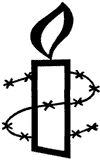 The seven-year Maoist insurgency and government attempts to contain it have resulted in serious human rights violations, according to a scathing new report by Amnesty International. The report says at least half of the 4,300 victims of the conflict since November 2001 (compared to the 2,700 lives lost in the last five years) were killed unlawfully.
The seven-year Maoist insurgency and government attempts to contain it have resulted in serious human rights violations, according to a scathing new report by Amnesty International. The report says at least half of the 4,300 victims of the conflict since November 2001 (compared to the 2,700 lives lost in the last five years) were killed unlawfully.
The vast majority of the victims were civilians targeted for their real or perceived support to the CPN (Maoist), others were Maoists deliberately killed after they were taken prisoner, or killed instead of being arrested. "Nepal: A Deepening Human Rights Crisis" reports torture is widespread. At least 66 people are reported to have "disappeared" since November 2001. They were last seen being taken into custody by security forces. More than 200 "disappearances" have been reported to Amnesty International.
Human rights abuses by the Maoists have included deliberate killings of an estimated 800 civilians considered "enemies of the revolution", hostage-taking for ransom, torture of people taken captive and deliberate killings of members of the security forces after they were taken captive. The Maoists have also been responsible for recruiting children into their ranks and using them in combat situations. The rapid deterioration in the human rights situation is set against a background of a mounting political crisis in the country and embedded in a pervasive climate of impunity, said the report.
Impunity is a longstanding problem in Nepal. Successive governments' willingness to condone the actions of the security forces, even when they have committed gross human rights violations, was underlined by the incorporation of Section 20 in the Terrorist and Destructive Activities (TADA). This section grants prosecution immunity to members of the security forces "or any other person" for "any act or work performed or attempted to be performed by him in good faith under the Act."
The persistent failure over the years to act against those responsible for grave human rights violations has raised major questions about the commitment to or concern for human rights, even though the Constitution of Nepal protects fundamental rights and Nepal is a signatory to all major human rights treaties.
Faced with the widespread impunity and the authorities' lack of willingness to remedy this, existing institutions in Nepal such as the Supreme Court and the National Human Rights Commission (NHRC) are not able to address the deepening human rights crisis. International assistance is needed to provide increased human rights protection and create a law enforcement system capable of greater transparency and accountability. Amnesty International also believes international insistence that human rights and humanitarian law standards be upheld will assist in reducing violence and protecting vulnerable civilians.
The report was based on the findings of an Amnesty International delegation to Nepal in September which collected meticulous information on atrocities by both sides. It will be submitted to members of the forthcoming United Nations Commission on Human Rights (UNCHR) at Geneva in March 2003. Amnesty International will press for the adoption of a resolution expressing concern about the deepening human rights crisis in Nepal, in particular reports of widespread extra-judicial executions, "disappearances", torture and unlawful detentions.
Amnesty International says it will also urge members of the UNCHR to consider appointing a Special Rapporteur for Nepal. They have called upon both the Maoists and the government to uphold human rights and humanitarian standards as a confidence-building step towards peace talks.
Nepal makes the list
 Despite global treaties, children are being recruited as soldiers by governments in the Congo, Burundi and Liberia and are prevalent among rebel groups in Colombia, the Philippines, Uganda, Sri Lanka and Nepal. Olara Otunnu, the UN special representative for children and armed conflict, said the report for the first time named governments and groups recruiting youths younger than 18 for military combat.
Despite global treaties, children are being recruited as soldiers by governments in the Congo, Burundi and Liberia and are prevalent among rebel groups in Colombia, the Philippines, Uganda, Sri Lanka and Nepal. Olara Otunnu, the UN special representative for children and armed conflict, said the report for the first time named governments and groups recruiting youths younger than 18 for military combat.
"This shows the international community is serious and also that the community is watching," Otunnu said. An estimated 300,000 child soldiers were carrying arms in over 40 countries worldwide, most of them in Africa and East Asia, according to UNICEF.
The report listed 23 groups including governments and rebel factions in five countries where child soldiering is common. While the governments of Congo, Burundi and Liberia were named as recruiters of child soldiers, Otunnu included Nepal's Maoists in the list of rebel groups using children as soldiers, porters and sex slaves. (A picture of children hired as porters by Maoists in the midwest, above.)
Otunnu said the report represented the "beginning of a systematic effort in a new era of monitoring and reporting on the conduct of parties and how they treat children during conflict".
The standards being violated include a number of human rights pacts as well as an amendment to the 1990 Convention on the Rights of the Child that prohibits the use of children younger than 18 in combat. These standards apply to insurgent groups as well as governments, making both accountable for such actions, the report said.


